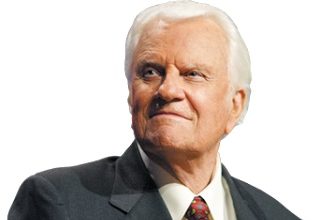DCLM Search The Scripture 2 January 2022: Creation And Origin Of Man


Deeper Christian Life Ministry – Search The Scripture 2 January 2022 (Volume One Lesson One)
Click HERE for Previous MESSAGES by Pastor Kumuyi
Topic: Creation And Origin Of Man (STS 2 January 2022)
MEMORY VERSE: “In the beginning God created the heaven and the earth“: (Genesis 1:1)
TEXT: Genesis 1:1-31; 2:1-25
MESSAGE:
The first book of the Bible is aptly called Genesis or the book of beginnings because it tells the story of how all things began. It is a concise narrative of the beginning of time, life, sin, salvation and the human race and a synopsis of four major historical events: the creation, the Fall, the Flood and the dispersion of nations. It further records the history of four great patriarchs: Abraham, Isaac, Jacob and Joseph. Although the book does not give a complete explanation of the process of creation, it reveals everything a person needs to know in order to worship God and appreciate His awesome power and infinite wisdom. Genesis begins with God because He predates all creation. It does not open with the beginning of God because He has no beginning. He is eternal, self-existent, perfect in essence, infinite in knowledge and boundless in wisdom. He is Omnipotent, Omnipresent and Omniscient, the Master Creator, and Source of all things, visible and invisible. There is no other concise, complete or authoritative declaration about the origin of the universe and man than the Scripture statement: “In the beginning God created the heaven and the earth” (Genesis 1: I). The revelation of God as Creator disproves man-made theories that either dispute or distort the biblical creation story. There are several unfounded theories about God and His creation. Atheism says there is no God. Polytheism teaches that there are many gods. Omnitheism believes in all gods. Materialism declares that there is nothing in existence beyond physical. Evolution argues that higher forms Of life were not created but evolved from lower ones. Fatalism postulates that there is no definite purpose in creation but that things are subject to inevitable fate. Pantheism suggests that there is no personal being called God, but God is the universe and the universe is God. Deism asserts that there is a Supreme Being who is neither interested nor ever intervenes in human affairs, but He only created the world, like a watchmaker and left it to run on its own. Agnosticism says there may be a God but there is no sufficient evidence to prove He exists. In effect, the agnostic declares: ‘there may be, or there may be no God. I am not sure’. But all these theories, and several others like them are wrong. They are products of man’s finite mind and futile attempt to find God through human reasoning and the so-called scientific approach. But God cannot be found out by research except through revelation in response to genuine faith. Anyone who desires to know God or come to Him must believe that He exists and rewards those who diligently seek Him (Job 11:7; Hebrew 11:6). The book of Genesis boldly asserts the fact of God’s existence and points out the works that testify of Him. The psalmist affirms: “The heavens declare the glory of God; and the firmament sheweth his handywork. Day unto day uttereth speech, and night unto night sheweth knowledge” (Psalm 19:1,2)
THE PROOF AND REALITY OF CREATION (Genesis 1:1-31; Psalms 33:6,8,9; 90:2; Exodus 20:11; Isaiah 45:18: 1 Samuel 2:8; Deuteronomy 4:32; John 1:3; Colossians 1: 16; Hebrews 11:.3)
“In the beginning God created the heaven and the earth”. is the firs’ given and information every human being should No other statement is more assertive, affirmative and authentic: in relation to the reality that God is the creative Being behind all matter. Every tenet of genuine faith rests on the fact that He exists and He is the Maker of the heavens and the earth. Nothing else is self-existent, apart from God. The singular fact that we all originated from Him makes Him most deserving of our devotion, submission and reverence. In creating the material universe, God said, “let there and there was. The psalmist affirms it. “By the word of the LORD were the heavens made; and all the host of them by the breath of his mouth. Let all the earth fear the LORD: let all the inhabitants of the world stand in awe of him. For he spake, and it was done; he commanded, and it stood fast” (Psalm 33:6,8,9). The same word of God is still as powerful and effective today to meet all the spiritual and physical needs of His people. In six days, God made the visible universe and formed man whom He appointed to be the head of His creations. “For in six days the LORD made heaven and earth, the sea, and all that in them is, and rested the seventh day; wherefore the LORD blessed the sabbath day, and hallowed it” (Exodus 20: 1 1). On the first day of creation, God commanded light to dispel the darkness that pervaded the earth. The lesson here is that the first priority for every darkened, troubled or tormented heart is the entrance of Christ, the Light of the world (John 8:12; 9:5). The light of salvation and knowledge of God must first come to those who sit in darkness of sin and ignorance before other benefits such as prosperity and healing can truly profit them. It is definitely out of order to specialise in ministering temporal blessings to sinners without leading them to genuine salvation. Also, God created light and separated it from darkness, thereby teaching believers the principle of separation from the world of darkness. True Christians are children of light and should “have no fellowship with the unfruitful works of darkness” or unbelievers who are children of darkness (Ephesians 5:11; 2 Corinthians 6:14). On the second day, God created the firmament called the atmospheric heaven. He caused a great expanse of space to separate the waters above from the waters below. Then, on the third day, dry land and seas were created. God also commanded plants to appear on the land. Here, it is important to observe the perfect order of God’s creative work and how the activities of the first three days correlate with the last three days of creation. In the first three days Of creation, God set the stage in preparation for the actual creatures He was to bring forth. On the fourth day, God created the sun, moon and stars and fixed them in the heaven which He had earlier created. Next, on the fifth day, fishes and fowls were created to inhabit the waters and the firmament. Finally, on the sixth day, God created land animals and man. Then, God looked upon all He had created and He was satisfied. He said they were “very good”. On the seventh day, God rested, not as a result of tiredness but because He had completed the work of creation. He also wanted to give mankind a perfect pattern of the work-rest cycle. After our routine tasks and work, we should rest and renew our strength. This also anticipates the future rest that believers will enjoy in heaven after their labour on earth is ended. We must labour to enter this final rest (Hebrews 4:1).
THE PURPOSE AND RESPONSIBILITIES OF MAN IN GOD’S CREATION (Genesis 2:1-17; 9:2; Psalm 8:3-8; Proverbs 6:4-11; 19: 15; Ecclesiastes 10: 18; Hebrews 2:6-8)
Early in the book of Genesis, God revealed the plurality of the Godhead. The statement, “Let us make man in our image, after our likeness” reveals the tri-unity of God the Father, Son and Holy Ghost at creation. The Bible teaches the Trinity of the Godhead (Genesis 1:26; 11: 7; Psalm 2: 7; Isaiah 48: 16; Matthew 3:16, 17; 1 John 5:6,7). Man is the crown of God’s creation and he was made to rule and dominate the earth. God blessed man to be fruitful and multiply like He did to other lesser living creatures. He desires us to be fruitful in our physical bodies and spiritual endeavours. In the ordering of creation, man was the last to be created. In other words God instituted the marriage institution; therefore, it should not be trivialised, abused or desecrated. He instituted marriage for partnership, procreation, preservation of purity, pleasure and protection. It is meant for companionship, comfort, care and chastity (Genesis 24:67). It also serves as a pattern of the relationship between God and His people (Ephesians 5:22-33; Isaiah 54:5; Jeremiah 3:14). From God’s original model of marriage, it is very clear that monogamy, one man marrying one woman, is the scriptural precept to follow. This excludes remarriage while the lawful spouse is still alive. Polygamy or multiple marriages, In whatever form, are unscriptural. Also, lesbianism, gay, bi-sexual or transgender marriage (otherwise called LGBT) and bestiality are condemned in the Bible (Leviticus 20:13; Romans 1:27). Marriage is ideal for mature people only, not for immature boys and girls who cannot manage its intricacies. It takes a man and a woman to marry and become one flesh. God also prohibits unequal yoke in marriage for His children. Anyone intending to marry should pray for God’s guidance to get the right partner and be prepared to follow the scriptural guidelines. Another crucial precept on marriage is that a man must leave his parents and cleave to his wife. “Therefore shall a man leave his father and his mother, and shall cleave unto his wife: and they shall be one flesh” (Genesis 2:24). The word ‘cleave’ implies a welding, gluing or blending together in so much that any attempt to separate would cause serious damage. This would demand the exclusion of third parties and a determination to remain bonded with one’s spouse till death.
Jesus reiterated this in the New Testament: “…Have ye not read, that he which made them at the beginning made them male and female, And said, For this cause shall a man leave father and mother, and shall cleave to his wife: and they twain shall be one flesh? Wherefore they are no more twain, but one flesh. What therefore God hath joined together, let not man put asunder” (Matthew 19:4-6). Marriage is for a lifetime and only death can separate the couple not even a court of competent jurisdiction. He was created after other features and creatures that would make the earth convenient, conducive and habitable for him have been put in place. It is significant to note that man was not spoken into existence like other creatures but a product of painstaking exploit of the Almighty. He was intricately fashioned according to the design of the Creator (Psalm 139: 14). The account in the first chapter of Genesis states the fact and chronology of man’s creation. However, the second reveals how he was made. Both accounts are not contradictory but one explains the other. God formed man’s body from the dust of the earth and breathed into him the breath of life so he could become a living soul. The breath of God in man makes him unique in all of creations. It corresponds to the invisible spirit component God placed in man that makes him a morally conscious being. The spirit eventually goes back to God when man dies. “Then shall the dust return to the earth as it was: and the spirit shall return unto God who gave it” (Ecclesiastes 12:7). Realising that we were made from the dust of the earth, we should be ever humble. Also, it is unwise to spend all our days on earth labouring for the dust at the expense of our precious never-dying souls. God made man in His own image. This does not necessarily mean a physical image, but one that is of spiritual and moral likeness. Man had the righteousness and nature of God ingrained in him so he could have fellowship with his Creator. This is the greatest exclusiveness of man and makes him not only higher than every creature but absolutely unique. It is necessary therefore, to be conscious of the fact that every human being, no matter how lowly or highly placed, is an image of God and should be treated with dignity, honour and love. This is also one reason God prohibits murder and considers killing a human being a capital offence. God has a purpose for creating man. “And the LORD God planted a garden eastward in Eden; and there he put the man whom he had formed” (Genesis 2:8). God gave man the responsibility of dressing and keeping the Garden of Eden (Genesis 2:15). This implies that He detests idleness and laziness but commands and cherishes industry and profitable labour. In these days where many people despise hardwork and undermine the dignity of labour, it must be pointed out that man was appointed to gainful labour even before the fall. It is a grave error to think that it was the fall of man that warranted normal work. Those who are idle under the pretext that they cannot find employment in corporations or offices should consider working in fields and gardens. There is blessing upon enterprising and creative people (Psalm 128:2; Isaiah 65:21-23). Secondly, man was assigned the duty to give names to all the animals that God created. “And out Of the ground the LORD God formed every beast of the field, and every fowl of the air; and brought them unto Adam to see what he would call them: and whatsoever Adam called every living creature, that was the name thereof’ (Genesis 2:19). Giving names to a person or object is one way to exercise authority. That was the motive behind the common practice of changing the names of captured land or people to indicate they are under a new authority. What an awesome liberty and power to name everything God has put under our charge! Man was expected to be creative and employ his physical and mental powers in carrying out his duties in a responsible way. Thirdly, man was created to show forth the glory of God. “Even every one that is called by my name: for I have created him for my glory, I have formed him; yea, I have made him” (Isaiah 43:7). This implies that man’s life must reflect the glory, honour and power of God. He must exude righteousness and a holy lifestyle It is interesting that God made adequate provision for man’s upkeep, welfare and sustenance in the Garden of Eden. “And out of the ground made the LORD God to grow every tree that is pleasant to the sight, and good for food; the tree of life also in the midst of the garden, and the tree of knowledge Of good and evil” (Genesis 2:9). God gave man free access to enjoy all the pleasant plants that grew in Eden including the tree of life. The only prohibition, which was designed to test man’s obedience, was the tree of the knowledge of good and evil. Divine provisions are by far more than His purposeful prohibitions and men ought to be thankful. God s instruction to man was very simple and clear. He was free to eat of every tree in the garden, except the tree of the knowledge of good and evil. The consequence of disobedience was equally stated in clear terms: “for in the day that thou eatest thereof thou shalt surely die” (Genesis 2:17). This was the first test God placed before man to prove his obedience or otherwise. Man is a free moral agent with the capacity and freedom to make personal choices; we will be held responsible for our decisions and their consequences. Everyone has to decide whether to obey or disobey God. But we must remember that our decisions will surely determine our destiny (Deuteronomy 30: 15, 16).
PRECEPTS AND REASON FOR THE MARRIAGE INSTITUTION (Genesis 2:18-25; Hebrews 13:4; Matthew 19:4-6; Ephesians 5:21-33)
God created a male and a female and commanded them to be fruitful and multiply. The origin of marriage, the first great institution He gave to man is revealed in the text. The man was created first, then the woman was formed out of the man. However, it should be emphasised that the making of the woman was deliberate, not an afterthought or a necessity that arose simply because the first man lacked a helper among the lesser creatures. God knew beforehand that man would need a suitable helpmate to fulfil His purpose and responsibilities. Of course, there was no way Adam could be naturally fruitful, multiply and replenish the earth and subdue it, without a help meet. The formation of the woman was part of God’s original design. He took a rib from the side of man to form a wife for him. When God brought the woman to Adam, he was pleased with her. “And Adam said, this is now bone of my bones, and flesh of my flesh: she shall be called Woman, because she was taken out of Man” (Genesis 2:23). God instituted the marriage institution; therefore, it should not be trivialised, abused or desecrated. He instituted marriage for partnership, procreation preservation of purity, pleasure and protection. It meant for companionship, comfort, care and chastity (Genesis 24:67). It also serves as a pattern of the relationship between God and His people (Ephesians 5:22-33; Isaiah 54:5; Jeremiah 3:14). From God’s original model of marriage, it is very clear that monogamy, one man marrying one woman, is the scriptural precept to follow. This excludes remarriage while the lawful spouse is still alive. Polygamy or multiple marriages, in whatever form, are unscriptural. Also, lesbianism, gay, bi-sexual or transgender marriage (otherwise called LGBT) and bestiality are condemned in the Bible (Leviticus 18:22,23; 20:13; Romans 1:27). Marriage is ideal for mature people only, not for immature boys and girls who cannot manage its intricacies. It takes a man and a woman to marry and become one flesh. God also prohibits unequal yoke in marriage for His children. Anyone intending to marry should pray for God’s guidance to get the right partner and be prepared to follow the scriptural guidelines. Another crucial precept on marriage is that a man must leave his parents and cleave to his wife. “Therefore shall a man leave his father and his mother, and shall cleave unto his wife: and they shall be one flesh” (Genesis 2:24). The word ‘cleave’ implies a welding, gluing or blending together in so much that any attempt to separate would cause serious damage. This would demand the exclusion of third parties and a determination to remain bonded with one’s spouse till death. Jesus reiterated this in the New Testament: “…Have ye not read, that he which made them at the beginning made them male and female, And said, For this cause shall a man leave father and mother, and shall cleave to his wife: and they twain shall be one flesh? Wherefore they are no more twain, but one flesh. What therefore God hath joined together, let not man put asunder” (Matthew 19:4-6). Marriage is for a lifetime and only death can separate the couple, not even a court of competent jurisdiction. The marriage union is strengthened when both spouses are open and transparent with each other. This demands mutual trust, confidence and love. It also requires readiness to confess, apologise, forgive and forbear one another when offences or misunderstandings arise in the relationship. The world, and indeed, the marriage institution can never endure unless man recognises the divine precept and abide by it. Only then shall the world be a better place for mankind.
Questions for review:
- Why are the various human theories about God and creation wrong?
- How can an unbeliever receive the light of the gospel?
- What is the significance of God resting on the seventh day of creation?
- What are the reasons God created man and put him in the Garden of Eden?
- List the purposes for which marriage was instituted by God.
- What is God’s standard concerning divorce and remarriage?
- How can believers strengthen the marriage institution?
Flatimes’ Notice Board: Until you are born again, God ever abiding presence will never be with you. You must be born again to enjoy continuous victory. Please say the displayed prayer below in faith:
Lord Jesus, come into my life. I accept You as my Lord and Personal Saviour. I believe in my heart You died and rose from the dead to save me. Thank You Lord for saving me, in Jesus name Amen.
If you just prayed the prayer of salvation online please send your testimonies and prayer request to HELP LINES: +234(8157991934, 8157991936, 8157991937) E-MAIL: ltm@deeperlifeonline.org






